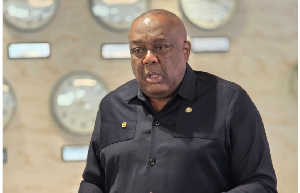Separatist group, Homeland Study Group Foundation (HSGF), who are agitating for an independent Western Togoland, an area that covers the entire Volta and Oti regions of Ghana, are in the news again.
On Friday dawn the group took over Juapong, a town in North Tongu District of the Volta Region.
The group has mounted huge signposts with the inscription ‘Welcome to Western Togoland’ at different entry points.
Roadblocks they have mounted at different parts of the town too have brought vehicular traffic to a halt in the area.
The group has also captured three personnel of the Ghana Police Service, including the Commander of the Sogakope Command after attacking the Aveyime and Mepe Police Stations.
“We are seeking independence of our great motherland,” one of the separatists told a radio station in Accra.
The HSGF has been campaigning for more than 10 years for the Volta Region and parts of northern Ghana to break away to form a new country – the Western Togoland.
According to the group, the Volta Region does not fall within former Gold Coast borders, now modern-day Ghana.
Because of this, they want secession from modern-day Ghana.
The Homeland Study Group Foundation claims that Western Togoland was an independent state before it was forced to join Ghana after the 1956 plebiscite.
Per their demands, Volta and Oti regions, parts of Northern Region, North East region and Upper East Region will become part of a new Western Togoland state.
Last year, the group declared independence twice but some 81 members of the group were arrested after assembling for protest over the arrest their leaders.
National executive for the Homeland Study Group Foundation, Emmanuel Agbavor, told the BBC last year that the people of the Volta Region have been suppressed for a very long time.
The territory of Western Togoland was first colonised by Germany in 1884 and incorporated into the Togoland colony. After Germany's defeat during the First World War, the colony of Togoland was divided between France and Britain as protectorates.
The western part of Togoland became part of Britain's Gold Coast colony, which became independent in 1957 to form modern-day Ghana. Togo gained independence from France in 1960.
Western Togoland is a member of the Unrepresented Nations and Peoples Organisation (UNPO). Four million people live in the region. In terms of language and culture, Western Togoland, especially the Volta region, has more in common with Togo. Locals in the region say they feel underrepresented by Ghanaian authorities.
General News of Friday, 25 September 2020
Source: www.ghanaweb.com













